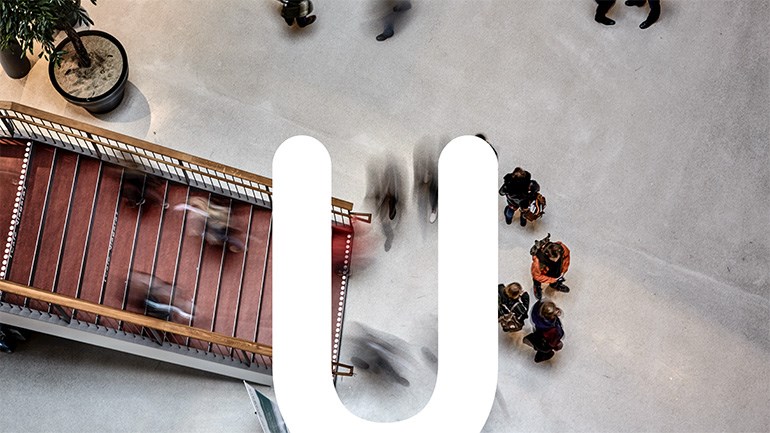Talk
UNIC Lightning Bites: creative sectors and engaging artistic methods in the post-industrial city
Monday 27 October, 13:00 - Wednesday 29 October, 14:00
Online -

UNIC's Lightning Bites series feature short, impactful talks from diverse perspectives. Each Lightning Bites event addresses the critical challenges and opportunities of a timely topic or discipline.
Join us for an inspiring UNIC Lightning Bites session exploring the role of art, culture, and creative industries in renewing urban landscapes.
A link to the event will be sent after you register.
Register for Lightning Bites using our form
Lightning Bites Programme
Monday October 27
13:00-13:30: Brice Catherin, University College Cork
Artistic Methodologies.
13:30-14:00: Błażej Filanowski, University of Lodz
The Perebel Method – Artistic Creativity Combined with Research Tools and Practical Experience
Many contemporary urban challenges are complex and require solutions that are informed by knowledge and experiences from other cities, while also being adapted to local specificities. One response to these challenges is the Perebel Method, an innovative organizational problem-solving approach. It combines unconventional, performative tools created by artists with the expertise of practitioners and researchers, opening up new possibilities for unique and context-sensitive solutions.
The Perebel Method is currently practiced and tested in organizations in Poland, supported both by the Science for Society program and through individual agreements with institutions. Interdisciplinary teams applying this method have addressed challenges such as senior activation as a preventive measure against neurodegenerative diseases for the City of Łódź, the user experience of VR/XR solutions for Smart Cities in collaboration with company Orange Poland, (in progress) the strengthening of safety and the sense of safety at mass events, and the effective implementation of blue-green infrastructure through planned participatory processes.
The presentation will discuss both the theoretical foundations, focusing on the performative research dimension of artistic practice, and the organizational principles behind structuring and facilitating interdisciplinary teams. Selected case studies will illustrate how the Perebel Method responds to the challenges of urban transformation, engages citizens, and strengthens civic competences.
Tuesday October 28
13:30-14:00: Mehmet Zeki Giritli, Koç University
The Transformative Power of Theatre in Post-Industrial Cities: Insights from Turkey
In Turkey, as in many other parts of the world, post-industrial urban landscapes have undergone significant transformation. Former industrial zones are increasingly repurposed as cultural and artistic hubs. This talk examines how theatre and performance arts, in a broader sense, contribute to this process by fostering cultural identity, social cohesion, and inclusivity. Drawing on case studies from İstanbul—such as the conversion of industrial sites like Bomontiada and Santralistanbul into cultural centers, as well as the emergence of independent theatres in Kadıköy and Beyoğlu—the presentation highlights how artistic initiatives revitalize urban environments and challenge dominant narratives.
Particular attention will be given to collaborations between universities, cities, and artists, as well as to theatre groups operating in diverse spaces such as former industrial sites, apartments, and even garages. The talk will also explore how these initiatives contest the authoritarian political climate and entrenched hierarchies within the field of performance arts. By situating these practices within the broader framework of urban innovation, the presentation demonstrates how artistic methods can address structural inequalities, amplify marginalized voices, and generate new forms of civic participation.
Ultimately, it argues that theatre and creative drama function as transformative tools that reshape the social and cultural fabric of post-industrial cities.
13:30-14:00: Hrvoje Laurenta, City of Zagreb, New Spaces of Culture
Zagreb's Cultural Districts
Zagreb’s Districts of Culture brings art and creativity to every corner of the city. Coordinated by the Center for Cultural and Social Development – New Cultural Spaces, the program aims to make culture accessible to all residents and strengthen local communities through diverse cultural events. After a successful pilot edition, the 2025 program expanded to 14 districts, featuring over 100 events and 300 artists. The presentation will highlight how this initiative is reshaping Zagreb’s cultural landscape and bringing culture closer to its people.
Wednesday October 29
13:00-13:30: Lea Vene, University of Zagreb & CIMO
Center for Research of Fashion and Clothing
Soft gestures: Exploring non institutional and de-fashioning strategies in the work of CIMO
In her talk, Lea will present the ongoing curatorial, education and research work within the Centre for Research of Fashion and Clothing (CIMO). CIMO is a nonprofit organisation founded in 2013 and based in Zagreb, Croatia. CIMO is focused on researching the theoretical and creative aspects of fashion and clothing as part of contemporary visual and urban culture. CIMO contextualises specific local practices and phenomena in relation to the global fashion system and academic fashion discourse. Some of the topics covered are the rise and fall of the local textile industry, working class clothing practices, post socialist fashion histories, reinvention of different local craft traditions, socially engaged collaborative textile practice, experimental educational programs for young fashion designers and visual artists
13:30-14:00: Per Linde, Malmö University
Speculative design
Reimagine cities - The world as we know it is transforming in sinister ways, slowly decreasing faith in the future. Contemporary post-industrial European cities are plagued by the challenges of approaching environmental and social sustainability, economical, migration and health issues and many more. Thinking about the future and transformational change is becoming increasingly harder. This talk will present re-imaginatorium, taking offspring in design fiction and speculative design, as an artistic format for radically re-imagine the future of cities. We can think about the format as “critical imagination” that can be used to challenge taken for granted assumptions, worldviews, and facilitate the emergence of critical questions.
